Creating high-quality content is one of those website and blog-related tasks you just can’t get away from. We’ve stressed it again and again (eye roll, sigh—but hear us out). We’re not going to rehash how to create high-quality content (you can find that here). What we are going to do is give you a few tips on how long some of that content should be, because, for one, different types of content come with predetermined expectations for length.
But there are even more compelling reasons to get your content length right: On one hand, once someone clicks on a link, they spend an average of less than fifteen seconds on a page, so your content needs to be snappy yet informative. On the other hand, SEO favors longer content because it has more information, so it ranks higher in searches. A double-edged sword?
It can certainly feel that way. If readers want shorter content but SEO favors longer content, how will readers find your short content? And if your content is longer, how can you keep their attention? Some readers prefer shorter content because of time constraints or attention span. Others appreciate longer content because they’re looking for more in-depth information.
The key is getting the length right for the different types of content. And we can help you there.
Different Types of Content
First, let’s review some of the common types of content you’ll post on your site or blog.
Informational Articles
These are the big ones—and in this case, we don’t necessarily mean big as in length. We mean big as in these are the ones that carry the most weight on your site as they contain the information that details your business as a whole. These articles fall into the long-form content category, which is content that generally exceeds 1,200 words.
Blog Posts
Blogs are meant to be the more casual side of your site. As we shared back in 2016, your blog is the place to let your hair down, loosen your tie, and get up close and personal with readers. Blog posts can be short quips about your company or slightly longer derivatives about why you’re the expert on the product or service you’re selling. Not only do blog posts encourage conversation on your site itself, they can be easily shared across your social media channels, encouraging conversations all over cyberspace (at least you hope that’s what happens). So how long should they be? Aim for around a thousand words and you’re golden. (And be sure to check out these tips for making those posts more eye-catching.)
Videos
We could write an entirely separate blog post about the length of videos since they can be used for different purposes, such as a tour of your place of business or client testimonials. These would be longer videos (unless you want to run as fast as you can around your building to keep it under one minute?). Shorter videos work well for such things as product tutorials and commercials. Generally speaking, shorter videos—like all short content—are more likely to be watched, so a good rule of thumb is to keep them under one minute.
10x Content
If you’ve never heard this term before, here’s a quick definition: Coined by Rand Fishkin, it’s content that, in its core and design, is ten times better than any other piece of content out there on the same topic. So it’s information you can write about at length, information about which you are truly the expert. It’s usually around 2,500 words, but you’ll want to break up the text with bullets, white space, images, infographics, and other visual tricks that help the content feel less cumbersome or overwhelming.
Content Minimum Length
Now that we’ve covered how long major pieces of content should be, let’s take a quick look at the other end of the spectrum. Unfortunately, according to content experts, there isn’t a definitive answer. Forbes magazine states that three hundred words is a good minimum, especially if you don’t want your site’s content to be seen as “thin” or of little value, either by the reader or by a search engine. But what really matters is what the content is offering: Is it informative? Does it offer readers something substantial?
Quality over Quantity. Always.
Whether long or short, your content needs to be meaningful. It needs to add to the canon of information already out there on your subject. Content that is rich in information and includes keywords that make it easier for readers to find becomes exactly what both the reader and the search engine are looking for. The amount of information in an article, whether long or short, is better than a skimmed-off-the-top piece or one that beats around the bush paragraph after paragraph.
Write for Your Readers
Rather than trying to fit your content within the sometimes-vague guidelines of how long or short it should be, first think about who you’re writing to. Who are you trying to teach or hoping to share your information with? Write specifically to them. Don’t just fill your site or blog with meaningless words.
It’s a well-known fact that how you say or present something can be just as important as what you say or present. So make sure the way you format your content is super reader-friendly and visually appealing, or easy on the eye. Above, we talked about how in informative articles you should incorporate white space, bullets, and images to break up the text. This applies to all types of content. You can also use headings and subheadings to make it easy for readers to get the gist of your article at a glance. And then, when writing the text itself, make sure you’re concise and to the point. Readers generally aren’t looking for a prolonged discourse; they are looking for information. So give it to them in a way that makes them want to spend more than fifteen seconds on your site.
Content may be king, but there are other important factors to consider: that content needs to have valuable answers and good information regardless of length.
And now it’s your turn: Do you prefer short or long content? Or does it depend on the piece? We’d love to hear your thoughts in the comments below.













Short, short, and short–95% of the time. If it’s longer, it has to jump out and rope me in with a relevant personal (short) story. I refuse to read articles that go on and on except from writers who’ve earned my trust with valuable content.
Hi, Kim!
Thanks for the feedback! I agree with what you said about reading longer articles only by writers you trust. Indeed!
Thanks,
Lindsay